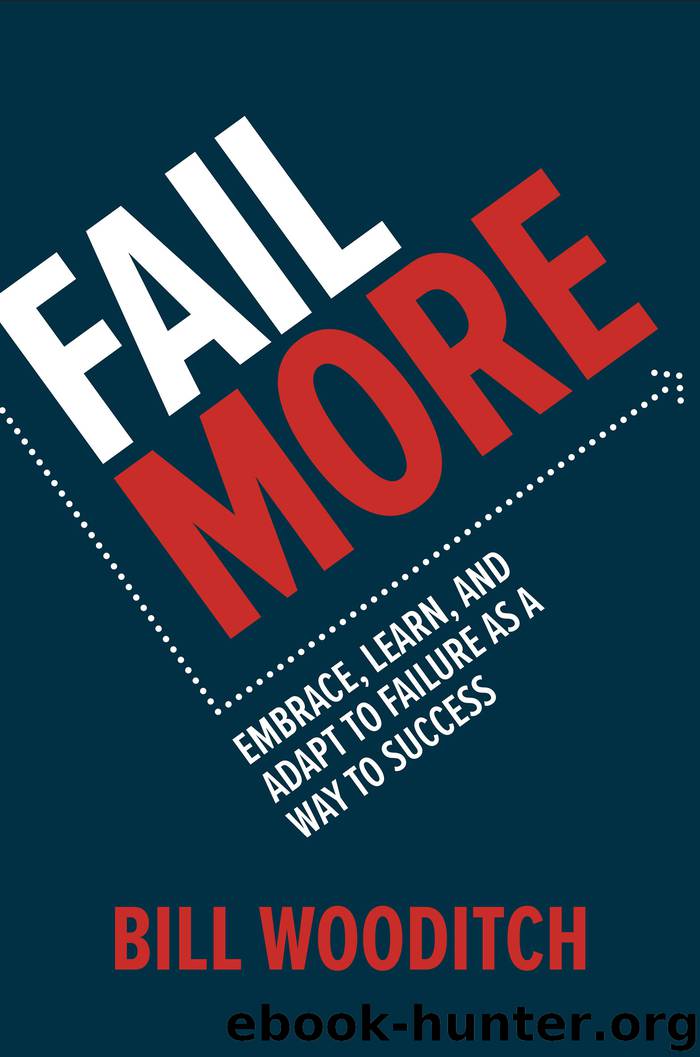Fail More by Bill Wooditch

Author:Bill Wooditch
Language: eng
Format: epub
Publisher: McGraw-Hill Education
Published: 2019-04-22T16:00:00+00:00
Fixed Versus Growth Mindset
In this study, the students with a fixed mindset felt the sting of failure. From their fixed-mindset perspective, their intelligence was on trial, and they failed. As Dweck puts it, “Instead of luxuriating in the power of ‘yet,’ they were gripped in the tyranny of ‘now.’” Perhaps this doesn’t come as a shock, but the ones with a fixed mindset told the researchers they’d probably cheat instead of studying more if they failed. Another group said they would find other people who didn’t do as well, and using a relative standard of comparison, they would feel better because they weren’t alone.
The fixed-mindset students ran from potential danger, otherwise known as error. On the other hand, the growth-mindset students were engaged. In electrical tests, their brains showed high activity levels, and the brains of those with a fixed mindset showed none.
This resulted in Dweck asking fundamental questions: “How are we raising our children? For now or for yet? Are we raising kids to get the A in order to get into a good school, get a good job, and then what? They haven’t learned to fail. They need validation based on a result, and that will dictate the rest of their lives.”
Dweck works with employers who seek her out, and she explains that “we have already raised a generation of young workers who can’t get through the day without an award.” Dweck believes in praising wisely. But instead of praising intelligence or talent, she praises the process that the kids are engaged in, as well as the effort, strategies, and willpower that drive their improvement.
Dweck calls willpower “the great equalizer” and believes that this trait is a better indicator of future success, even over IQ.
But what about confidence? Dweck has found that using the words “not yet” gave kids greater confidence and encouraged them to create a path forward from persistence. The children from the study could move beyond their comfort zone, learn something new, and allow their neurons in the brain to form “new, stronger connections” and, over time, get smarter.
Download
This site does not store any files on its server. We only index and link to content provided by other sites. Please contact the content providers to delete copyright contents if any and email us, we'll remove relevant links or contents immediately.
| Ethics | Etiquette |
| Fashion & Image | Health & Stress |
| Motivation & Self-Improvement | Work Life Balance |
| Workplace Culture |
Tools of Titans by Timothy Ferriss(8396)
Change Your Questions, Change Your Life by Marilee Adams(7783)
Deep Work by Cal Newport(7083)
Playing to Win_ How Strategy Really Works by A.G. Lafley & Roger L. Martin(6306)
Man-made Catastrophes and Risk Information Concealment by Dmitry Chernov & Didier Sornette(6019)
Big Magic: Creative Living Beyond Fear by Elizabeth Gilbert(5772)
Digital Minimalism by Cal Newport;(5765)
Ego Is the Enemy by Ryan Holiday(5450)
The Slight Edge by Jeff Olson(5417)
The Motivation Myth by Jeff Haden(5212)
The Laws of Human Nature by Robert Greene(5208)
Stone's Rules by Roger Stone(5088)
Tuesdays with Morrie by Mitch Albom(4784)
Eat That Frog! by Brian Tracy(4540)
Rising Strong by Brene Brown(4459)
Skin in the Game by Nassim Nicholas Taleb(4249)
The Money Culture by Michael Lewis(4207)
Bullshit Jobs by David Graeber(4190)
Skin in the Game: Hidden Asymmetries in Daily Life by Nassim Nicholas Taleb(4007)
